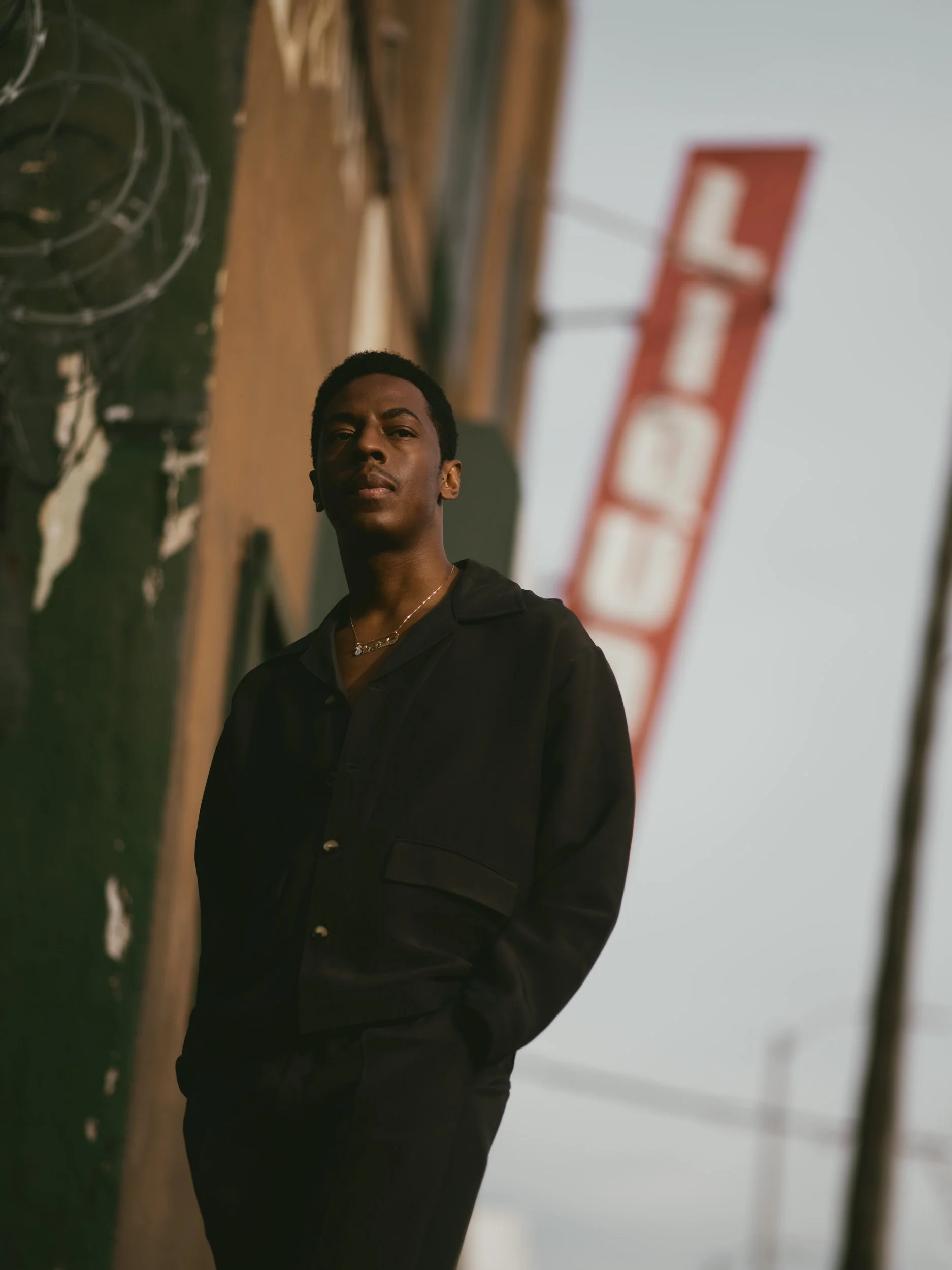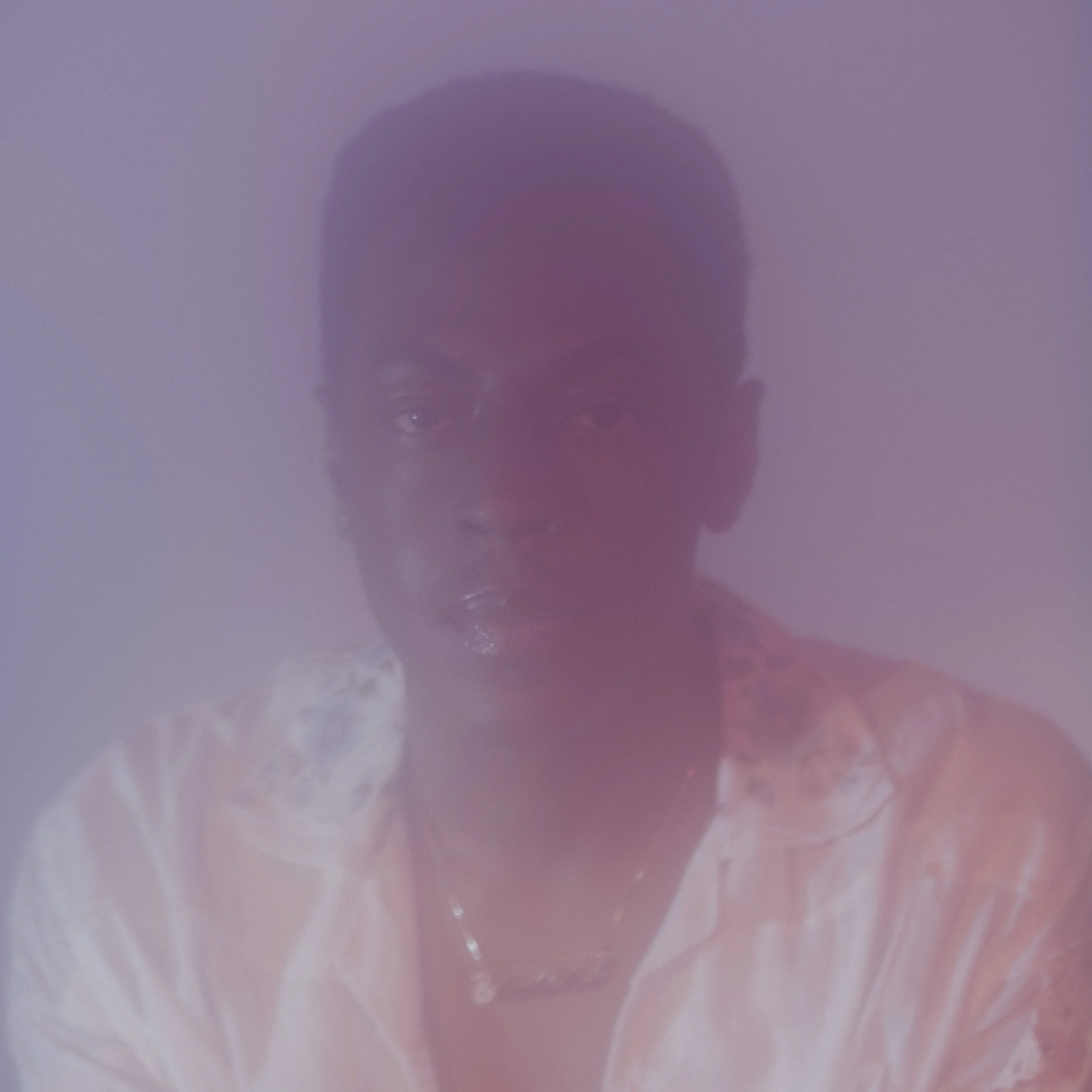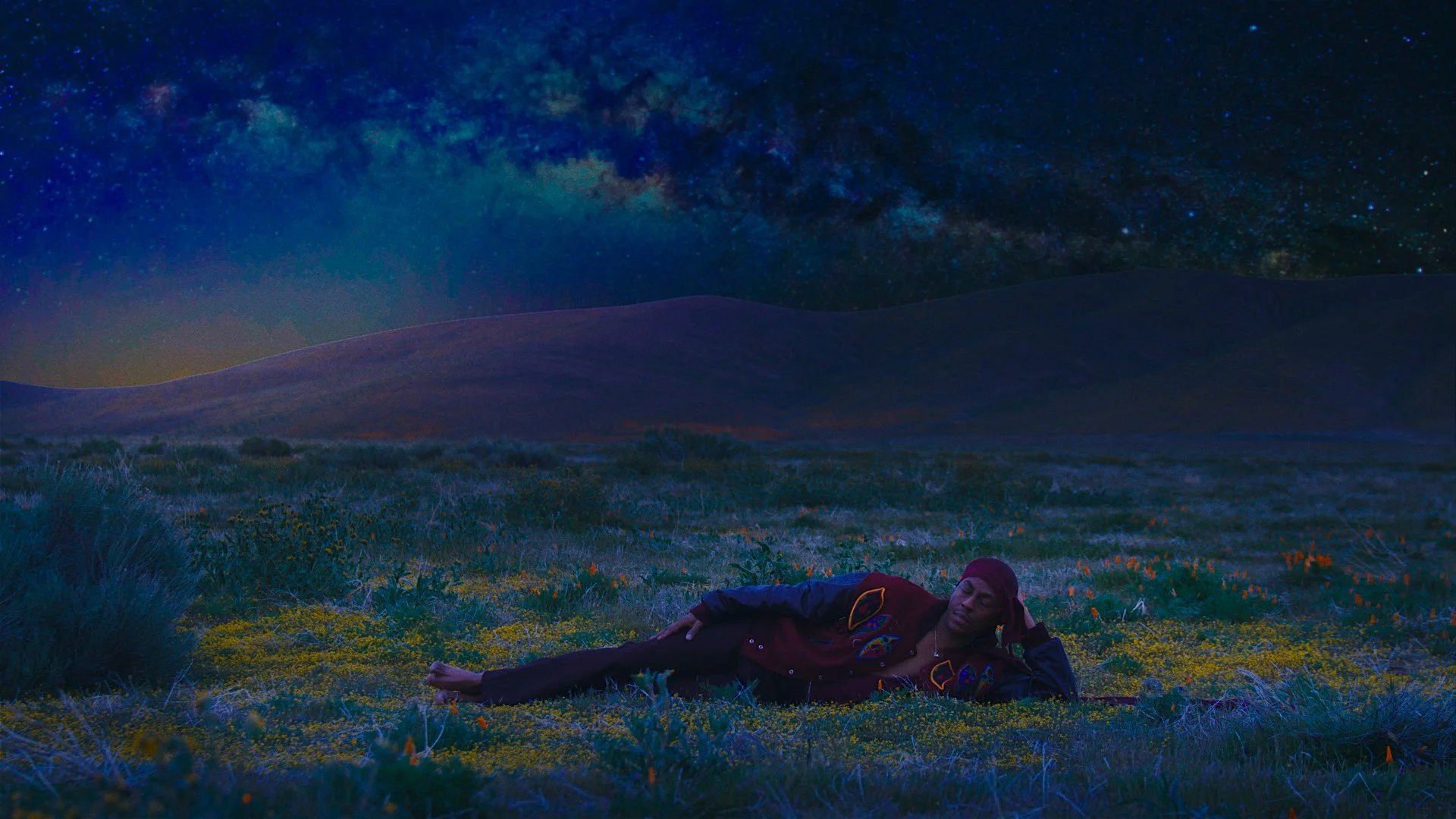A personal essay-interview from a far-reaching conversation between Naeem Juwan and Trever Hagen on writing music, performing rites and kumquats.

[11am Minneapolis, 9am Los Angeles // 13 December 2021]
I’m late on this interview. I have to call Naeem and chat about Startisha. I’ve been waiting a long time to be able to write something about Naeem. And now that the time has come I feel awfully underprepared – or at least it has dawned on me that the depth I’d like for this text to have is perhaps beyond words. “Beyond the scope of this research” as an academic might say in presenting hypotheses without evidence.
The last time I saw Naeem – and really spoke with him – we were living together in Minneapolis. In an actual house across from St Stephen’s along with our friend Brendan the Chef; a handful of late-30s men who found themselves in a stricken situation of transience and tight means. And before this house around the corner from MIA, Naeem and I lived in the same apartment building in Uptown off Hennepin near Lake of the Isles: me on the 3rd floor, he on the 1st and our friend Justin the Singer living in between. Either living configuration resembled something like “Three Men and a Baby”. It all seemed perfectly fine and necessary.
Over the phone this morning we are catching up and hashing out some information for Naeem’s upcoming performance for the Great Northern Festival – February 4th, 2022 at Icehouse. I remember seeing Naeem perform there in – I believe it was – spring 2017? I recall from that show a couple of things: [1] getting up on that Icehouse stage can be daunting because it’s just you right up against folks’ faces or backs. [2] Naeem gets everyone on his side, quickly. It is a feat of performance that shouldn’t be undersold – rather it should be coveted, such magic that it is. That magic spell of getting a room full of folks onto the same page, into the same story. What else are we here for anyway?
So I’m happy to be talking this winter morning to a friend who’s a compelling artist. I say that because he is outdoing himself by finding ways to translate and to communicate his perspective and experience for the sake of connection or exploration. How he does that artistic act is compelling to me because, as Naeem has sung before sings: “you fight fire with water.” Naeem doesn’t accept the conventional wisdom but instead takes on a deeper truth behind the accumulation of meaning within convention that we often agree upon unthinkingly.
Trever Hagen: What are you doing up so early over there?
Naeem Juwan: This is my routine. But also the neighborhood I live in has so many dogs and a bunch of roosters. So it’s really hard to sleep. These fucking roosters.
T: That’s not what I’m expecting you to say – I thought you’re gonna be like, “No I got surf lessons at 10 and then I’ve got my acting lessons.” But you’re talking roosters in Los Angeles. Great.
N: Yeah, this neighborhood is a little wild. I wake up with the sun and the roosters. We start waking up early as hell the older we get. It’s like the spiritual side of me being like “you better get the sun.”
T: I put up a heated birdbath in my backyard and I’m just staring at all these birds for longer than I should most days. I just see myself as an elderly man sitting on a park bench staring at a pigeon and being completely happy and in wonder with nature and life and death and all of it.
N: Yeah. Definitely. I wake up and just go on a walk. It’s weird because I don’t have a license. So in this dumbass city where you got to drive everywhere, I’m one of the few people who walk in the neighborhood. It’s this loneliness that kind of makes me appreciate nature. I’m just walking to get some lyrics out of my body. But there are all these weird fruit trees that aren’t around on the East Coast. I don’t think this place is that beautiful yet, but I’m picking up on nature a lot more.
T: It’s interesting like that. The so-called “tourist mind” where you have this contrast to your previous daily life and you’re just taking in all these different things in a new city. It’s almost an extreme form of mindfulness.
N: I think for me it definitely has a lot to do with my age. Before, my interest in being in a new city was about the people and now it is switching over to nature. When I was young, I was just always staring at every single person on the street. I would fall in love like 20 times a day you know? Now I’m walking down a street and I see a guava tree or a grapefruit. Or is that a lemon or a kumquat?
T: How’s your live performance going forward? I think the last time I saw you perform was at the Turf Club actually with DJ Espada.
N: Yeah. I think I’m still trying to figure it out. It was really cool when we did that show because, you know, I can’t really sing. It’s not like my thing – it’s so new. I don’t have any real control over it yet. He really helped me have some confidence. I feel like he’s really great at making things feel good.
T: I’m excited to see that again. I recall even in 2018 at Bonnaroo [performing with Bon Iver]. I remember you singing in front of like tens of thousands of people, no problem. You say you’re all nervous about singing and stuff, but I’ve seen you crush it.
N: You say it was no problem, but that was a problem! I was so afraid. [laughs] I remember being backstage just nervously pacing around waiting for my time to go on stage. I looked up and then I see Francis [Starlite]. I was having a nervous breakdown, freaking out about going up and I saw my friend is doing the same thing. He was pacing around like crazy. But he was hyping himself up. He was like, “jump in.” He was rehearsing his part out loud. And I was like, “I need to do that.” So Francis went on stage and I kind of followed his routine. He just started singing a song you know, belting the song backstage like before. That helped me get through it. And I think I did pretty decent.
T: It was crazy how much the spotlight was on you. And I was just so impressed that anyone could do that. This is interesting, though, about those nerves because like, I get those hard sometimes. And one thing that I liked that you said to me one time, was about “flipping a switch” when you perform before you go on stage. What is that for you now? And is that the same switch as “Naeem” as it was for “Spank Rock”?
N: Yeah, I could definitely flip the switch easier with Spank Rock, because I had been rapping for so long. I understand the craft of rapping. But flipping a switch now is funny because it’s more like skydiving or something – you’re up in this plane, there’s only one-way down. You have to rely on everything that you’ve done up to that point. You have to rely on the fact that you wrote the song that you believe in and you have to rely on the fact that you rehearsed this with people and the people are counting on you. And if they thought that you were good enough then you’re good enough. So you try to go to that space where it’s no longer really about you as an individual, or even what you can do technically. It’s about completely giving yourself over to an energy that’s in the room. Or you’re bringing that spirit to the room.
T: You are providing the spirit for the room. That’s very interesting. It seems like a lot of humans long for that experience beyond the individual. Like sports fans, music fans, church fans. It seems like the same process of going beyond yourself, just with different content.

N: I think that’s what the gift of giving music is about. I don’t really think it’s about the individual. I think even the biggest, most iconic stars are still doing that work. Even through all that marketing and stuff, they still work to make us be a fanatic about their work. I don’t think that iconography is just given to people. Somebody can be beautiful and they can become an icon just off of their natural beauty. But they still have to give so much to their audience. And then sometimes we take it for granted – the amount of work it takes for something to turn that into a night.
T: Yeah it’s fascinating – and while that’s happening there is this musical feedback loop of self-care through music-making.
N: Yeah, I think good singers use that skill to cure themselves. And I think they can share that with other people as well. Being able to use your whole body as an instrument. It’s one of the most difficult things that I’ve ever tried to do. It’s a process of opening up. The more I learn to sing the more I have this appreciation for people who can truly sing. It’s the hardest thing I’ve ever tried to do in my life.
T: I heard Celine Dion’s “O Holy Night” on the radio the other day. I was so moved by imagining the healing vibrations that were happening in addition to the comfort of the song’s convention.
N: To sing you have to know your whole body and learn about parts of your body. To be the actual whole instrument… I think what stops me right now is the fact that sometimes I become afraid to actually open up. To feel that thing resonating through me is scary.
T: What is that difference in your experience of the physicality of your own voice from rapping to singing?
N: The funny thing is that as you grow older your voice kind of changes anyway. So with Spank Rock I had this high pitch tone. I really loved to use that tone as a weapon: I felt like I was throwing little darts. And I really knew how to use that. When I started singing and writing melodies it was a lot for me. Trying to imitate my favorite songwriters. I’m in the process of actually trying to figure out what my voice is, but I’m just kind of doing it publicly.
T: I was reading some reviews about Startisha and someone called it a creative rebirth or a transition. I’m curious what that means to you?
N: The first thing is like… It’s kind of funny. Hearing you call it a “transition.” Because how can I transition into myself?
T: I have no idea!
N: It’s less of a transition than a shedding. The Spank Rock experience was such a unique thing because it was extremely powerful. Like, expression, but only really in the underground, you know? It was eye-opening for everyone. But it wasn’t commercially successful. It’s something that influenced all the people that were commercially successful. But it never became a pop thing. To carry that weight of trying to make something like Spank Rock was really special. But it started becoming less special and started fizzling out… like things do. So deciding to put music out under my own name gave me just enough room to try some new things out on a record and also not feel like it has to be put out. Not like “Oh, can I make another club banger?” I was able to drop a lot of expectations. I was able to write a song like Startisha by focusing on a memory from my childhood. It felt really freeing to be able to just kind of focus on myself and use music therapeutically for the first time.
T: That’s it. That’s beautiful. How did you begin to write Startisha?
N: The song Startisha was the first song that me, Sam Green and Zack Sewall [Startisha’s producers] had written together before we decided to keep working on a whole album together. To me that was massive. I was like “these are the guys.” I went to their really-college-fucking-apartment [in Philly] and they let me sing this fucking weird-ass song. Then I asked them if they could make a beat. We just did it. They didn’t flinch. There were no questions asked. They allowed me that space to do that. Like wow… so many other people wouldn’t allow me to walk into the room and do that. That was like such a gigantic gift from them that day.
T: And from Philly you came to Minneapolis to finish it up in 2017?
N: You know, when we brought the album to Minneapolis we just started expanding. I couldn’t believe how creative that city is. I can’t believe how skilled these kids are. I was like this is the greatest like little fucking village I ever fell into.
>
“I couldn’t believe how creative that city is. I can’t believe how skilled these kids are. I was like this is the greatest like little fucking village I ever fell into.”
T: It’s very collaborative. There’s a mutual achievement kind of thing going on.
N: Ryan [Olson] reached out to me a couple of years before Berlin [37d03d, 2016] and brought me out to do shows and also to record with Poliça. I just liked the opportunity to do something different. I just wanted to sing. I think it has a lot to do with encouragement: what a community has given to you.
T: You just need the right person to be like, “oh, yeah, you’re doing great.”
N: If you’re part of a community that’s really open to self-expression, you get a city like Minneapolis. People are really serious about their instruments and their craft as musicians. They work really hard by themselves in their rooms and then dig in. And that’s so exciting because there are people who want to hear your weird shit.
And on top of that, it’s cinematic. It’s like the extra sprinkles that the city gives you. You know walking from like CC [Club] back to the apartment and there’s two feet of snow and it’s fresh white in the sparkling. I have that image: that I was walking on diamonds.
>
“If you’re part of a community that’s really open to self-expression, you get a city like Minneapolis. ”
I thought that I hated the snow and cold. But I couldn’t figure out why I was so excited to bear the cold and to walk these four blocks in negative-fucking-degrees-whatever-the-fuck. It’s so not a part of my person. If you told me I was gonna do that I’d be like, “hell no I’m not doing that shit. It sounds horrible.” But when you get there, it is really beautiful. I mean, there were also moments where I was myself walking somewhere and the city felt familiar to me. Maybe because it kind of reminds me of Baltimore. So it didn’t feel like I couldn’t navigate it. Sometimes you feel that way, like if you’re in Stockholm or Paris. It felt so familiar that it was really easy for me to just kind of be by myself and be completely comfortable.
Or like hanging out by the river by Psymun’s studio. I’d sit and watch them and we’re just standing by this incredible river. It’s super dreamy – Like some novel. And then we go inside the studio and Corbin is wailing.

Man… that’s what I miss the most about Minneapolis and also what really knocked me off my feet when I first moved there were these really beautiful bodies of water. I was just like, man, these kids got it so lucky and I hope they know how lucky they are. I’m missing it man. It’s like my favorite place on earth.
T: You know there’s always a home for you in Minneapolis. So whenever you want, it’s open hours forever.
N: Alright then Trev, talk soon.
T: Talk soon.


